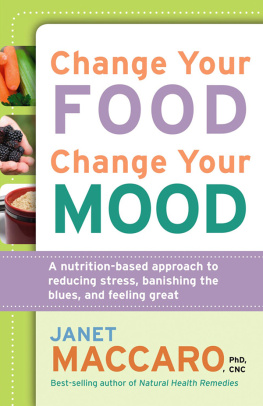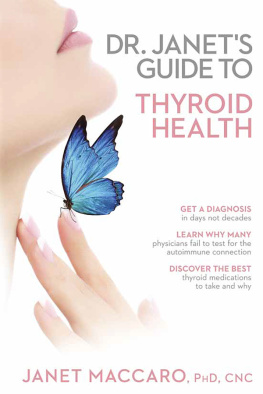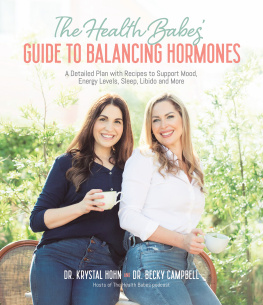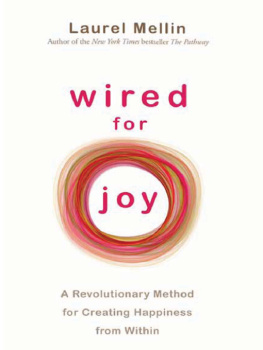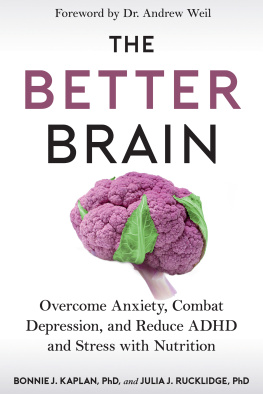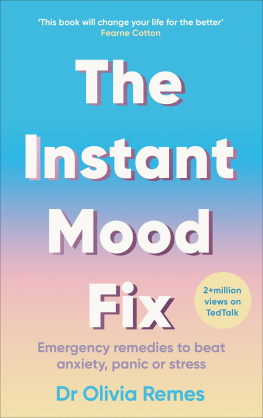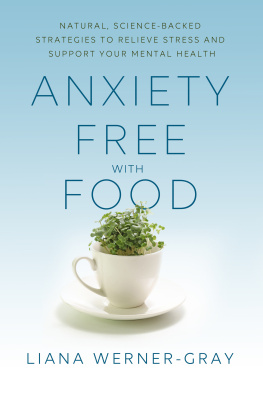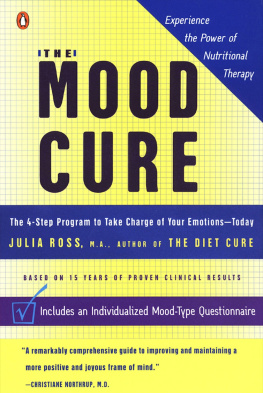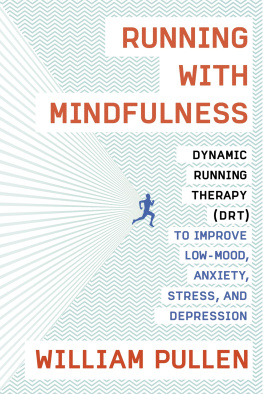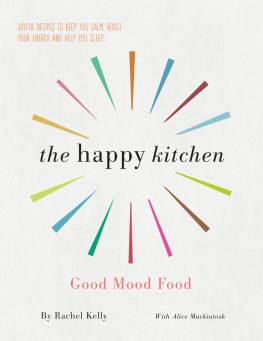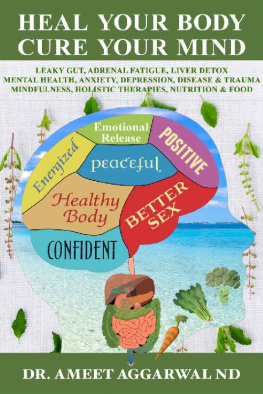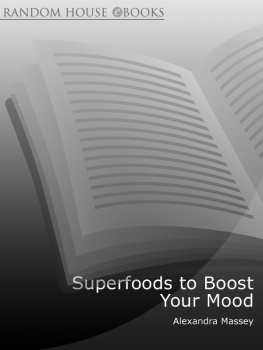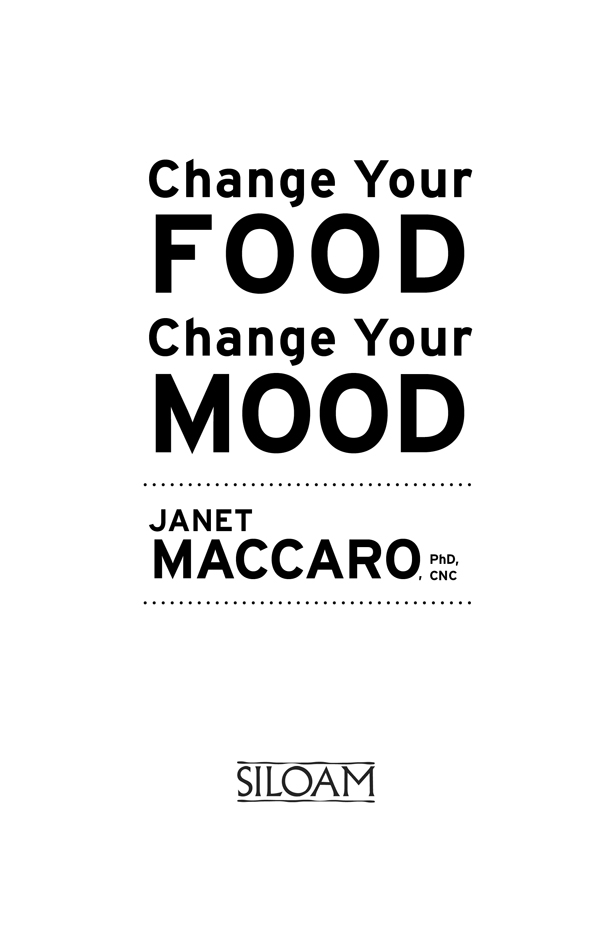
Most CHARISMA HOUSE BOOK GROUP products are available at special quantity discounts for bulk purchase for sales promotions, premiums, fund-raising, and educational needs. For details, write Charisma House Book Group, 600 Rinehart Road, Lake Mary, Florida 32746, or telephone (407) 333-0600.
CHANGE YOUR FOOD, CHANGE YOUR MOOD
by Janet Maccaro, PhD, CNC
Published by Siloam
Charisma Media/Charisma House Book Group
600 Rinehart Road
Lake Mary, Florida 32746
www.charismahouse.com
This book or parts thereof may not be reproduced in any form, stored in a retrieval system, or transmitted in any form by any meanselectronic, mechanical, photocopy, recording, or otherwisewithout prior written permission of the publisher, except as provided by United States of America copyright law.
Unless otherwise noted, Scripture quotations are from the New American Standard Bible, Updated. Copyright 1960, 1962, 1963, 1968, 1971, 1972, 1973, 1975, 1977, 1995 by the Lockman Foundation. Used by permission (www.Lockman.org).
Cover Designer: Judith Wright
Executive Design Director: Bill Johnson
Author Photo: Markow Southwest, www.paul.markow.com
Copyright 2008 by Janet Maccaro
All rights reserved
Library of Congress Cataloging-in-Publication Data:
Maccaro, Janet C.
Change your food, change your mood / Janet Maccaro. -- 1st ed.
p. cm.
Includes bibliographical references.
ISBN 978-1-59979-226-2
1. Mental health--Nutritional aspects. 2. Mood (Psychology) I. Title.
RC455.4.N8M33
2008 616.890654--dc22
2007045911
E-ISBN: 978-1-59979-905-6
CONTENTS
I TS TIME TO feed your brain! As the master organ of your body, your brain controls not only your intelligence and your body functions but also your emotions and moods. You cannot achieve and maintain peak functionphysically, mentally, and emotionallywithout the right energy-producing fuel supplied in the best amount and combination. Thats why it is so important to consider what you put into your body in the form of fuel (food and supplements). What you consume affects your emotional health as much as it influences your physical and mental health. Your food really does affect your mood.
Deep within your brain is a portion known as the limbic system. In the limbic system you will find the thalamus, amygdala, hypothalamus, and more. This system deals primarily with behavior and emotions. This is the emotional storehouse of the brain where motivating feelings such as anger, fear, and pleasure are born.
Our brains become depleted just as our bodies do. So it follows that by supplementing our brains with specific nutrients, which are needed for our brains to create new neurotransmitters, we can replenish, recharge, and regenerate our brains while simultaneously focusing on nutrition to rebuild our bodies.
When I discovered this, it literally changed my life. In the past, I had been able to keep my body in balance through diet and specific supplements that were targeted to my particular areas of concern. However, this discovery about brain replenishment proved to be the missing piece of the puzzle. With this piece in place, my health including my emotional healthcould become total and complete.
I want to pass on to you what I have learned about changing the foods I eat so that I can attain and maintain healthy moods. With this knowledge comes the responsibility to share my findings, which are truly life changing.
W E HAVE ALL had the experience at some pointsomething we have eaten has had a clear and traceable effect on our emotional state. Perhaps you drank several cups of coffee along with a sugary doughnut or two. Soon afterward, you felt wired, giddy, and too jittery to complete a sentence. Some time after that, however, the bottom dropped out and your mood plummeted, along with your energy level.
What happened? All that caffeine and sugar affected you both physically and emotionally, and it was a little like being on a roller coaster. It is pure cause and effect. What you consume through your mouth, whether it is a meal, a snack, or a food supplement, can make a big difference in how you feel.
Since most of us dont particularly want to go around feeling depressed, fatigued, achy, or generally useless, its good to learn as much as possible about how ordinary foods can enhance not only our physical state but also our emotional state. Its also good to know which foods and combinations of foods can detract from our feeling of well-being so that we can avoid them or consume them in moderation.
Y OUR BRAIN IS responsible for all of your thought patterns, your movements, and your behaviors. It is also responsible for all of your moods and emotions, both pleasurable and painful.
Neurotransmitters, which are important chemical messengers of the brain, help to control our feelings of anger, fear, anxiety, and depression. When neurotransmitters are depleted, prolonged anxiety or trauma can overload the cerebral cortex of the brain, causing the release of adrenaline. When adrenaline floods the brain, it triggers a multitude of life-disrupting physical symptoms.
While emotions, especially panic and anxiety, involve the brain, they are also felt throughout the entire body because our brains control every cell in the body. Biological and possibly genetic factors may be involved when people experience crippling anxiety or other emotional illnesses. It also seems that a persons perception of traumatic events or stress can actually alter his or her brain chemistry.
Because fear, anxiety, and other dangerous emotions can alter the brain and bodys chemical balance, they have a profound influence on the development of illness. In fact, prolonged stress can lead to eventual immune system breakdown. In other words, your emotions are not just all in your head! They are linked to the chemistry of your immune system.
Candace Pert, PhD, professor at the Center for Molecular and Behavioral Neuroscience at Rutgers University, made this statement in her research on the entire physiology of the body:
The chemical processes that mediate emotion occur not only within our brains, but also at many sites throughout the body, in fact, on the very surfaces of every single cell.
Early in Dr. Perts career she discovered a way to measure chemical receptors on cell surfaces in the brain. At this particular time, Dr. Pert was studying opiate receptors in the brain, which act like keyholes for opiate drugs such as morphine. It is the binding of an opiate to its receptor that creates the emotion of euphoria.
Soon after, it was discovered that the body makes its own opiates called endorphins, which serve as natural painkillers. Our bodies release these endorphins, or painkillers, during events such as childbirth and traumatic injury.
Later on, it was discovered that a host of other receptors besides opiates could be found in the brain along with other natural chemicals called neuropeptides. However, not all neuropeptides are associated with emotions as strong as euphoria. Some are more subtle, according to Dr. Pert. This groundbreaking information shocked the scientific community. The fact that endorphins were found in the immune system and that opiates and other receptors were found distributed in parts of the body outside the brain gave the mind-body connection credibility. This new research challenged the old notion that the immune system is independent of the nervous system.
Opiate receptors found in the brain were also found on immune cells. This opened the door and gave birth to mind/body medicine. Today, it is common knowledge among researchers and health-care professionals that the brain and immune system communicate with one another. Studies suggest that even very short bouts of dangerous emotions may alter some aspects of immune function.
Next page
